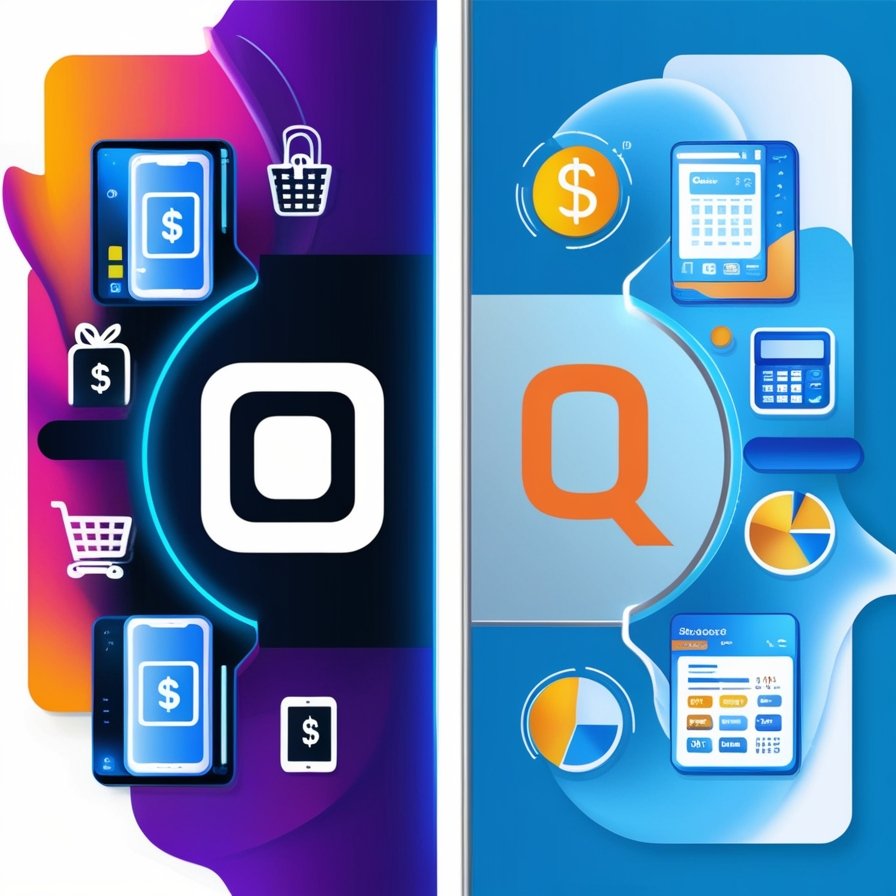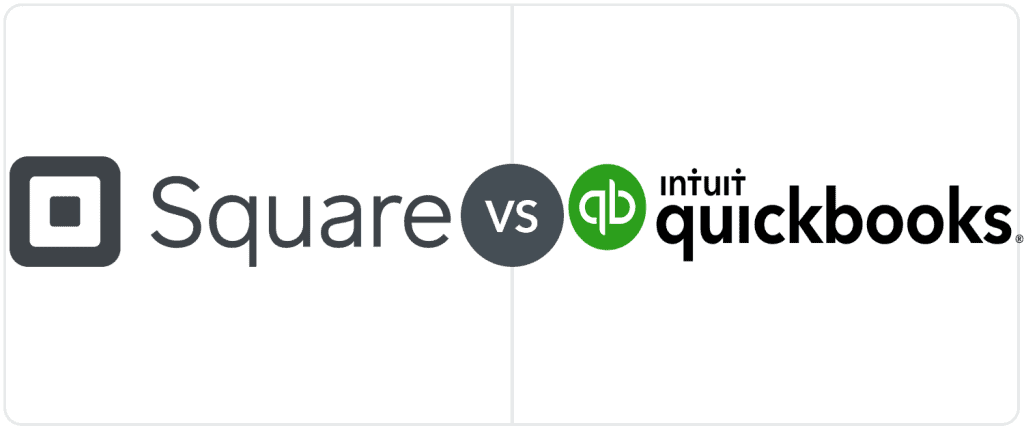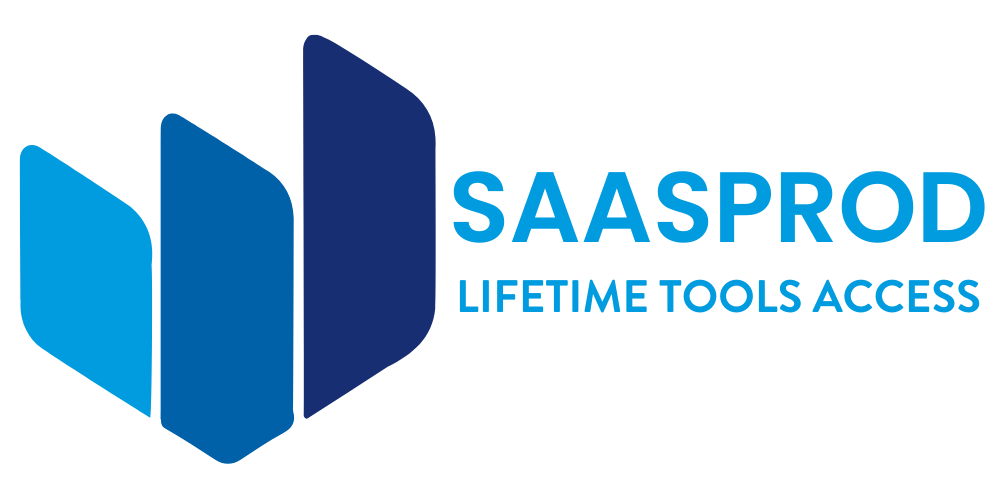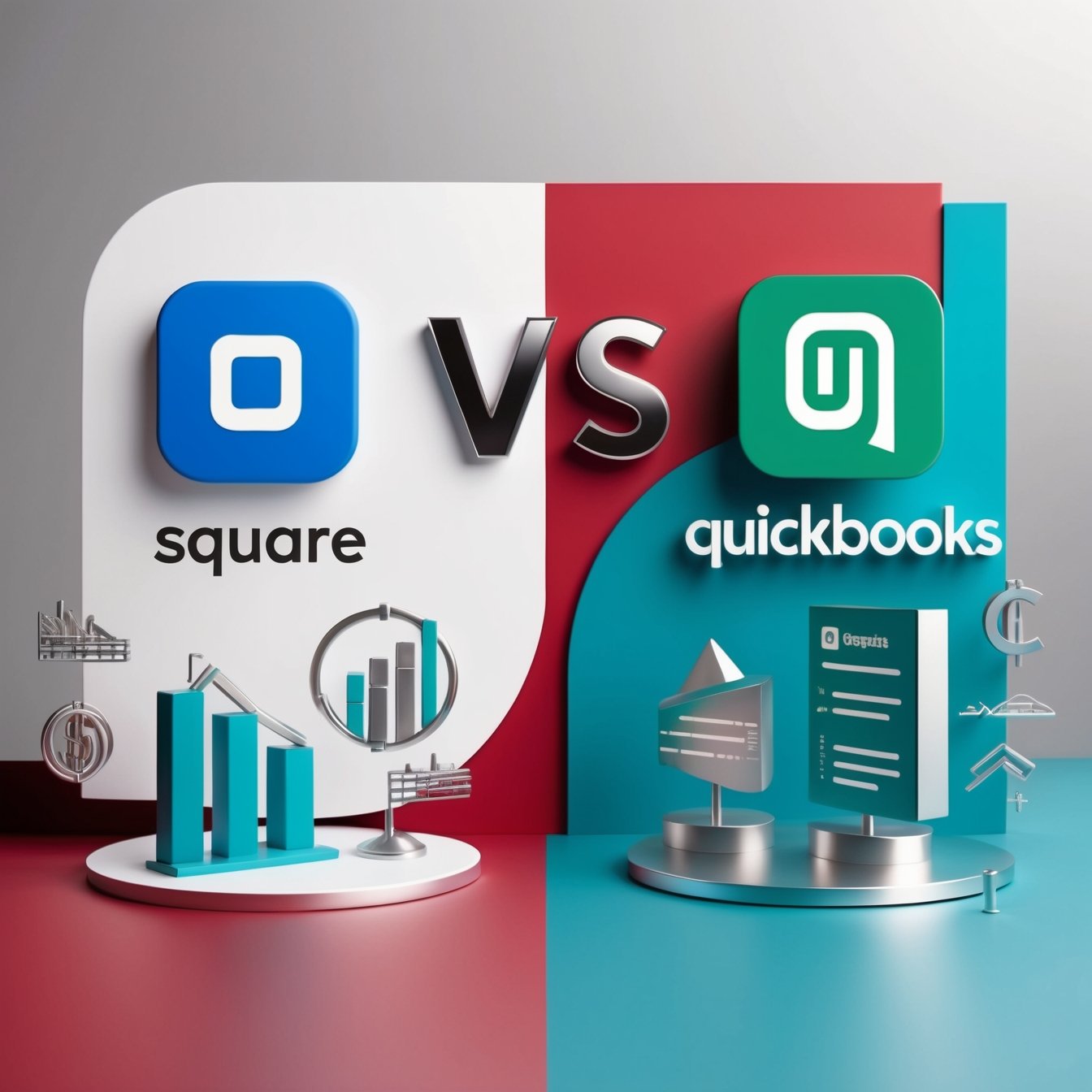Square Vs QuickBooks! Square and QuickBooks are popular tools for managing business finances. Both offer unique features and benefits.
Understanding the differences between Square and QuickBooks is crucial for business owners. Each platform has distinct capabilities suited to various needs. Whether managing sales, tracking expenses, or generating reports, knowing which tool fits your business can save time and money.
In this comparison, we will explore key features, pricing, and usability of both platforms. This will help you make an informed decision. With clear insights, you can choose the right financial management tool for your business needs. Stay tuned as we break down the essentials of Square and QuickBooks. This guide will help you determine which is the best fit for your business.

Overview Of Square
Square is a popular payment processing platform. It’s known for its ease of use and seamless integration with various business tools. Entrepreneurs and small business owners often use Square to handle their transactions efficiently. Let’s dive into the features and pricing of Square.
Features
Square offers a range of features that cater to different business needs. Here are some key features:
- Point of Sale (POS) System: Square’s POS system is user-friendly. It helps businesses manage sales, inventory, and customers.
- Online Store: Square provides an online store option. Businesses can sell products online without extra costs.
- Invoicing: Square allows sending professional invoices. Businesses can track payments and manage customer accounts.
- Virtual Terminal: Accept payments over the phone or via mail. This feature is ideal for remote transactions.
- Reporting and Analytics: Square offers detailed reports. Track sales, inventory, and employee performance easily.
Pricing
Square’s pricing is straightforward and transparent. Here’s a breakdown:
- Transaction Fees: Square charges 2.6% + 10¢ per swipe, dip, or tap. For manually entered transactions, the fee is 3.5% + 15¢.
- Monthly Fees: Square does not charge monthly fees for basic services. However, advanced features may have additional costs.
- Hardware Costs: Square offers various hardware options. Prices range from $0 for the basic magstripe reader to $799 for the Square Register.
- Online Store: The online store is free to set up. Transaction fees apply to online sales.
Square’s pricing structure makes it accessible for small businesses. The transparent fees help businesses plan their budgets effectively.
Overview Of Quickbooks
QuickBooks is a widely used accounting software. It helps small to medium-sized businesses manage their finances. With QuickBooks, users can track sales, create invoices, and monitor expenses. It’s a comprehensive tool for business owners seeking to streamline their accounting processes.
Features
QuickBooks offers a variety of features designed to make accounting easier:
- Invoicing: Create and send professional invoices.
- Expense Tracking: Monitor and categorize expenses.
- Payroll: Manage employee payroll and taxes.
- Bank Reconciliation: Match transactions with bank statements.
- Reporting: Generate detailed financial reports.
Pricing
QuickBooks offers several pricing plans to suit different business needs:
| Plan | Cost (per month) | Features Included |
|---|---|---|
| Simple Start | $25 |
|
| Essentials | $50 |
|
| Plus | $80 |
|
| Advanced | $180 |
|
User Interface
The user interface is a critical aspect of any software, especially for business tools like Square and QuickBooks. A well-designed interface can make the software easier to navigate, increasing productivity and reducing frustration. In this section, we will compare Square and QuickBooks based on their ease of use and customization options.
Ease Of Use
Square offers a clean, intuitive interface. Users can easily find what they need. The dashboard is simple and straightforward. Even beginners can navigate without much training. Icons and menus are clearly labeled, reducing confusion.
QuickBooks has a more complex interface. It offers many features, which can be overwhelming. The layout is not as intuitive as Square. Users might need some training to get comfortable. But once familiar, it becomes a powerful tool.
Customization Options
Square’s customization options are limited. The focus is on simplicity and ease of use. Users can change basic settings and preferences. But advanced customization is not available.
QuickBooks offers extensive customization options. Users can tailor the interface to fit their needs. They can create custom invoices, reports, and dashboards. This flexibility is valuable for businesses with specific requirements.
Integration Capabilities
Integration Capabilities are essential for any business software. Both Square and QuickBooks offer robust integration features. These features can help businesses streamline operations and improve efficiency. Let’s dive into the different aspects of their integration capabilities.
Third-party Apps
Square supports a variety of third-party apps. Businesses can connect their Square account with popular apps like Mailchimp, Xero, and Shopify. This allows them to manage different aspects of their business from one place.
QuickBooks also integrates with many third-party apps. Users can connect their QuickBooks account with apps like PayPal, TSheets, and Expensify. This enhances their accounting and payroll processes.
| Platform | Supported Third-Party Apps |
|---|---|
| Square | Mailchimp, Xero, Shopify |
| QuickBooks | PayPal, TSheets, Expensify |
E-commerce Integration
Square offers seamless e-commerce integration. Users can connect their Square account to their online store. This helps to manage inventory, sales, and customer data in real-time. Popular e-commerce platforms like WooCommerce and BigCommerce are supported.
QuickBooks also provides excellent e-commerce integration. It connects easily with online stores on platforms like Shopify, Magento, and WooCommerce. This ensures that sales and expenses are accurately tracked in the accounting system.
- Square integrates with WooCommerce and BigCommerce
- QuickBooks integrates with Shopify, Magento, WooCommerce
Both Square and QuickBooks provide strong integration capabilities. These integrations help businesses to operate more efficiently and stay organized.
Accounting Features
Accounting features are crucial for businesses. They help in managing finances, tracking expenses, and ensuring smooth operations. Both Square and QuickBooks offer different accounting features. Understanding these can help you choose the right tool for your needs.
Invoicing
Square provides a simple invoicing system. You can send invoices quickly. It has a user-friendly interface. This makes it easy for small businesses. You can customize invoices to match your brand.
QuickBooks, on the other hand, offers more advanced invoicing features. It allows scheduled and recurring invoices. You can also set up automatic reminders for clients. QuickBooks integrates with various payment gateways.
Expense Tracking
Square offers basic expense tracking features. You can monitor your expenses easily. It helps in keeping track of your spending. This is useful for small businesses with limited expenses.
QuickBooks provides comprehensive expense tracking tools. You can link your bank accounts. This allows automatic expense categorization. QuickBooks helps in detailed financial analysis. It is beneficial for businesses with more complex financial needs.
Customer Support
Effective customer support can make or break your experience with a financial tool. Knowing what kind of support you can expect from Square and QuickBooks is crucial. Below, we compare their customer support in terms of availability and support channels.
Availability
Having support available when you need it is important. Here’s a quick look at the availability of customer support for both platforms:
| Company | Support Hours |
|---|---|
| Square | Monday to Friday, 6 AM to 6 PM PST |
| QuickBooks | 24/7 for live chat; Monday to Friday, 6 AM to 6 PM PST for phone support |
Support Channels
Different users prefer different ways to get help. Both Square and QuickBooks offer multiple support channels:
- Square:
- Email Support
- Phone Support
- Live Chat
- Community Forum
- Help Center
- QuickBooks:
- Email Support
- Phone Support
- Live Chat
- Community Forum
- Help Center
Both platforms offer robust support options. However, QuickBooks excels with its 24/7 live chat. This can be a lifesaver for urgent issues outside regular business hours. Square’s community forum and help center are very active. They provide quick answers to common questions.
Credit: paygration.com
Reporting And Analytics
In the world of business management, reporting and analytics play a crucial role. Both Square and QuickBooks offer robust tools for tracking and understanding financial health. This section delves into the specifics of their reporting and analytics features.
Financial Reports
Square provides a variety of financial reports. These include sales summaries, transaction histories, and detailed financial statements. Users can easily generate these reports to gain insights into their business performance.
QuickBooks, on the other hand, offers comprehensive financial reporting. Users can create profit and loss statements, balance sheets, and cash flow statements. These reports help in understanding the financial position of the business.
Dashboard Insights
Square’s dashboard offers real-time insights. It displays key metrics like daily sales, top-selling items, and customer trends. This helps businesses stay on top of their performance.
QuickBooks features a customizable dashboard. It provides a snapshot of the business’s financial health. Key metrics include income, expenses, and outstanding invoices. Users can quickly identify areas that need attention.
Security Measures
When choosing between Square and QuickBooks, security measures are crucial. Both platforms offer robust security to protect your data. Let’s dive into how they keep your information safe.
Data Encryption
Both Square and QuickBooks use advanced encryption methods. They encrypt your data during transmission and storage. This prevents unauthorized access. Square uses AES encryption to protect your data. QuickBooks also employs AES encryption for enhanced security.
User Permissions
User permissions are vital for data security. Square allows you to set different user roles. You can control who accesses specific information. QuickBooks offers similar user permission settings. You can assign roles based on tasks. This limits data access to authorized users only.
Mobile Accessibility
Mobile Accessibility is crucial for businesses today. Both Square and QuickBooks offer mobile solutions, but which one stands out? Let’s dive into their Mobile App Features and Cross-Device Sync.
Mobile App Features
The Square app provides a user-friendly interface. It supports point-of-sale, inventory management, and real-time sales tracking. Users can also process payments quickly and securely.
The QuickBooks app focuses on accounting features. It allows users to send invoices, track expenses, and manage cash flow. Users can also capture receipts and track mileage for tax deductions.
| Feature | Square | QuickBooks |
|---|---|---|
| Point-of-Sale | Yes | No |
| Inventory Management | Yes | No |
| Real-Time Sales Tracking | Yes | No |
| Send Invoices | No | Yes |
| Track Expenses | No | Yes |
| Capture Receipts | No | Yes |
| Track Mileage | No | Yes |
Cross-device Sync
Square excels in syncing across devices. Whether on a tablet, phone, or desktop, your data stays updated. This helps teams stay in sync and manage sales efficiently.
QuickBooks also offers robust cross-device sync. Users can access their accounts from any device. This ensures that financial data remains consistent and up-to-date.
Both apps support seamless integration with other software. This includes eCommerce platforms, payroll services, and CRM tools. This connectivity enhances business operations and data accuracy.
Overall, both Square and QuickBooks offer strong mobile accessibility. The choice depends on your specific business needs. Square is great for sales and inventory. QuickBooks excels in accounting and finance management.
Scalability
When choosing between Square and QuickBooks, scalability is crucial. Businesses grow, and their software needs change. Both Square and QuickBooks offer solutions, but how do they compare?
Small Business Suitability
Square is ideal for small businesses. It offers simple, easy-to-use tools. Setup is quick, and the interface is user-friendly. Square’s pricing is straightforward, with no hidden fees. This makes it a great choice for small businesses with limited budgets. Features include:
- Point-of-Sale (POS) system
- Inventory management
- Invoicing
- Basic reporting
QuickBooks also caters to small businesses but with more comprehensive tools. Its accounting features are robust. This can help small businesses manage their finances better. QuickBooks offers:
- Detailed financial reports
- Expense tracking
- Payroll processing
- Tax preparation
Enterprise Solutions
As businesses grow, their needs become complex. Both Square and QuickBooks offer enterprise solutions, but they differ.
Square scales well for medium-sized businesses. It provides additional tools for growth. These include:
- Advanced employee management
- Customer relationship management (CRM)
- Custom pricing plans
- Advanced reporting
QuickBooks, on the other hand, is known for its enterprise-level solutions. It supports large businesses with complex needs. Features include:
- Advanced inventory management
- Multiple user support
- Customizable financial reports
- Integrations with various business apps
| Feature | Square | QuickBooks |
|---|---|---|
| Small Business Focus | POS, Inventory, Invoicing | Accounting, Payroll, Tax |
| Enterprise Solutions | Employee Management, CRM | Advanced Inventory, Reports |
| Pricing | Simple and Transparent | Varies with Features |
Choosing between Square and QuickBooks depends on your business needs. Small businesses may prefer Square for its simplicity. Larger enterprises may find QuickBooks more suitable for its comprehensive tools.
Payment Processing
Payment processing is a critical aspect of any business. It’s essential to understand how Square and QuickBooks handle this service. Each platform offers unique features and benefits for processing payments.
Transaction Fees
Square charges a flat rate for most transactions. This rate is typically 2.6% + 10¢ per swipe, dip, or tap. For keyed-in transactions, the fee is 3.5% + 15¢.
QuickBooks has a different fee structure. For swiped, dipped, or tapped payments, the fee is 2.4% + 25¢. Keyed-in transactions cost 3.4% + 25¢. There is also a monthly fee of $20 for using QuickBooks Payments.
Payment Methods Supported
Both Square and QuickBooks support a variety of payment methods. Here’s a breakdown:
| Payment Method | Square | QuickBooks |
|---|---|---|
| Credit/Debit Cards | Yes | Yes |
| ACH Transfers | No | Yes |
| Apple Pay | Yes | No |
| Google Pay | Yes | No |
| PayPal | Yes | No |
Square offers more options for mobile payments like Apple Pay and Google Pay. QuickBooks supports ACH transfers, which can be vital for some businesses.
Choose the platform that best meets your payment processing needs.
Tax Management
Managing taxes can be a complex task for businesses. Both Square and QuickBooks offer tax management features. Understanding these can help you decide which tool suits your needs.
Tax Calculations
Square provides automatic tax calculations on your sales. This means it calculates taxes based on your location and the customer’s location. It saves time and reduces errors.
QuickBooks also offers tax calculation features. It integrates with your sales and expenses to calculate accurate tax amounts. It supports various tax rates and types, including VAT and sales tax.
Tax Filing
Square does not offer direct tax filing services. You need to export the tax data and file it manually or use another service.
QuickBooks simplifies the tax filing process. It generates tax reports that you can use to file your taxes. It also offers integration with tax filing software, making the process smoother.
Customer Reviews
Customer reviews offer valuable insights into the strengths and weaknesses of both Square and QuickBooks. By exploring real user experiences, you can gain a better understanding of how these platforms perform in practice. This section highlights the positive feedback and common complaints from users of both systems.
Positive Feedback
Many users praise Square for its ease of use. They find the interface intuitive and simple to navigate. Small business owners appreciate the quick setup process. The robust customer support gets high marks for responsiveness. Users also love the integration with other tools. This makes business operations smoother.
QuickBooks also enjoys positive reviews. Users highlight its comprehensive accounting features. It helps in managing finances efficiently. The ability to generate detailed reports is a big plus. Many users find the software reliable and accurate. The extensive tutorial resources are useful for beginners.
Common Complaints
Despite the praise, Square faces some criticisms. Users report occasional glitches with the software. Some experience difficulties with refunds and chargebacks. The transaction fees are seen as high by a few users. Limited international support is another downside.
QuickBooks also has its share of complaints. The most common issue is the steep learning curve. Some users find the software complicated. The subscription costs can be high for small businesses. Customer service receives mixed reviews. Some users report long wait times for support. Integration with non-Intuit products can be challenging.
Pros And Cons Of Square
Square offers an intuitive interface and low processing fees, making it ideal for small businesses. On the downside, it lacks advanced accounting features compared to QuickBooks.
Square is a popular choice for small businesses. It offers many useful features. But, like any tool, it has its strengths and weaknesses. Let’s look at the pros and cons of using Square.
Advantages
Square is easy to use. The interface is user-friendly. Even beginners can navigate it without trouble. It also offers a free version. This is great for startups with tight budgets.
Square supports various payment methods. Credit cards, debit cards, and mobile payments are all accepted. This flexibility makes it convenient for customers. It also means more sales for your business.
The reporting features in Square are robust. You get detailed insights into sales, inventory, and customer behavior. This data helps make informed decisions. Tracking your business performance becomes easier.
Square also provides excellent customer support. They offer 24/7 support through phone, email, and chat. This ensures you get help whenever you need it.
Disadvantages
Square does have some limitations. It charges a higher transaction fee compared to some competitors. For businesses with high sales volume, this can add up.
The free version has limited features. To access advanced tools, you need to upgrade to a paid plan. This can be a drawback for businesses looking for a fully-featured free option.
Square also has limited customization options. While it is easy to use, it may not meet the needs of all businesses. If you need tailored solutions, you might find it lacking.
Lastly, Square’s offline mode is not always reliable. If your business relies on constant connectivity, this could be a problem. Transactions might fail if the internet connection drops.
In summary, Square is a solid choice for many small businesses. But, it’s important to weigh its pros and cons based on your specific needs.
“`
Pros And Cons Of Quickbooks
QuickBooks has been a popular choice for small business accounting. It offers a range of features that simplify financial management. But, like any software, it has its pros and cons. Understanding these can help you decide if QuickBooks is right for your business.
Advantages
QuickBooks is user-friendly. Even beginners find it easy to navigate. It offers a range of tools for managing finances. You can track income, expenses, and invoices. This helps in keeping your business finances organized.
Another advantage is its integration capabilities. QuickBooks works well with other business tools. This includes payment gateways, CRM systems, and e-commerce platforms. This makes it easy to sync your financial data across different systems.
QuickBooks also offers robust reporting features. You can generate detailed financial reports with a few clicks. These reports provide insights into your business performance. This helps in making informed decisions.
Disadvantages
Despite its benefits, QuickBooks has some downsides. One of the main issues is the cost. QuickBooks can be expensive for small businesses. The pricing plans can add up, especially with add-ons and integrations.
Another disadvantage is the learning curve. While it is user-friendly, it still requires some learning. This can be time-consuming for busy business owners. Some users also report occasional bugs and glitches. These can disrupt your workflow.
Customer support can also be a concern. Some users find the support response time slow. This can be frustrating when you need immediate help. QuickBooks also requires regular updates. Keeping up with these can be a hassle.

Credit: www.merchantmaverick.com
Case Studies
Choosing between Square and QuickBooks can be challenging for businesses. Let’s look at some real-life examples to see how each tool performs in different scenarios. By examining these case studies, you can better understand which platform might suit your needs.
Small Business Examples
Many small businesses use Square due to its ease of use and affordability. Consider a local coffee shop. This shop needed a simple way to manage sales and inventory. They chose Square because:
- Easy setup: No technical skills needed.
- Affordable: Low transaction fees.
- Versatile: Works with various payment methods.
Another example is a boutique clothing store. They found QuickBooks helpful for accounting tasks. The store chose QuickBooks because:
- Robust accounting features: Comprehensive financial reporting.
- Integration: Syncs with other business tools.
- Support: Access to expert help.
Enterprise Examples
Large enterprises have more complex needs. Let’s look at a national retail chain. This chain uses Square for in-store transactions because:
- Scalability: Handles high transaction volumes.
- User-friendly: Easy for staff to learn and use.
- Insights: Detailed sales reports.
On the other hand, a global manufacturing company uses QuickBooks for its accounting needs. They chose QuickBooks because:
- Advanced features: Supports complex financial operations.
- Customization: Tailors to specific business needs.
- Compliance: Ensures regulatory compliance.
Both Square and QuickBooks offer unique advantages. Understanding these real-world applications can help you make an informed decision.
Pricing Comparison
Choosing the right financial tool often comes down to cost. This section will compare the pricing structures of Square and QuickBooks. Understanding the cost differences can help you make an informed decision. We will break down the subscription plans and any hidden costs you might encounter.
Subscription Plans
Both Square and QuickBooks offer various subscription plans. Each caters to different business needs and budgets.
| Plan | Square | QuickBooks |
|---|---|---|
| Basic | Free | $25/month |
| Standard | $60/month | $50/month |
| Premium | $299/month | $75/month |
Square offers a free basic plan. This is ideal for small startups. QuickBooks starts at $25 per month. This is for the basic plan. As you need more features, the cost increases. Both platforms offer discounts for annual subscriptions.
Hidden Costs
Hidden costs can catch you off guard. It’s essential to know these additional fees.
- Transaction Fees: Square charges 2.6% + 10¢ per swipe. QuickBooks charges 2.4% + 25¢ per swipe.
- Additional Users: Adding extra users costs more. Square charges $10 per additional user. QuickBooks charges $10 per additional user.
- Hardware: Square sells hardware separately. QuickBooks does not include hardware in its plans.
These hidden costs can add up quickly. Always consider these when comparing prices.
Final Thoughts
Choosing between Square and QuickBooks depends on your business needs. Both offer unique features for small businesses. Consider ease of use and pricing before deciding.
Square and QuickBooks offer distinct advantages. Each serves different needs for businesses. Understanding which one aligns with your needs is crucial.
Summary Of Key Points
Square excels in payment processing. It offers a simple, user-friendly interface. It is ideal for small businesses and startups. QuickBooks, on the other hand, shines in accounting. It provides comprehensive financial management tools. It suits businesses that need detailed financial tracking. Both integrate with other tools, enhancing their functionality.
Best Use Cases
Square is best for retail and food service businesses. It simplifies payments and inventory management. It’s also great for businesses with a physical presence. QuickBooks is perfect for businesses that need robust accounting. It helps track expenses, payroll, and taxes. Service-based businesses also benefit from its invoicing features.
By understanding these key points and use cases, you can choose the right tool for your business.
“`
Recommendation
Choosing between Square and QuickBooks depends on your business needs. Each platform offers distinct features. This section will help you decide which tool suits you best.
Who Should Use Square?
Square is great for small businesses. It’s ideal for those who need a simple, user-friendly point of sale system.
- Retail stores
- Food trucks
- Pop-up shops
Square offers a free plan. You can start without upfront costs. It includes basic payment processing and sales tracking.
Square also supports various payment types. You can accept credit cards, mobile payments, and gift cards. Its hardware options are flexible. You can choose from a card reader, terminal, or register.
Square integrates with other tools. This includes inventory management and employee scheduling. It’s an all-in-one solution for small business owners.
Who Should Use Quickbooks?
QuickBooks is ideal for more established businesses. It’s best for those needing advanced accounting features.
- Accountants
- Bookkeepers
- Medium-sized businesses
QuickBooks offers robust financial reporting. You can track expenses, create invoices, and manage payroll. It’s perfect for detailed financial management.
QuickBooks also integrates with many third-party apps. This includes time tracking and tax preparation tools. It helps streamline your financial processes.
QuickBooks is available in various plans. You can choose based on your business size and needs. Each plan offers different features and support levels.
| Feature | Square | QuickBooks |
|---|---|---|
| Payment Processing | Yes | Yes |
| Accounting Tools | No | Yes |
| Inventory Management | Yes | Yes |
| Employee Management | Yes | Yes |
| Reporting | Basic | Advanced |
Choosing the right tool can enhance your business operations. Consider your needs and budget. Make an informed decision for your business growth.

Credit: cloudfriday.com
Frequently Asked Questions
What Is Square?
Square is a versatile payment processing platform. It offers tools for point-of-sale, e-commerce, and financial services. Ideal for small businesses.
What Is Quickbooks?
QuickBooks is a comprehensive accounting software. It helps manage finances, invoices, payroll, and more. Suitable for businesses of all sizes.
How Does Square Work?
Square processes payments via its card readers and online tools. It also offers inventory management and business analytics.
How Does Quickbooks Work?
QuickBooks tracks expenses, creates invoices, and generates financial reports. It integrates with banks and other financial tools for seamless management.
Conclusion
Choosing between Square and QuickBooks depends on your business needs. Square offers simple, user-friendly tools. QuickBooks provides comprehensive accounting features. Consider your budget and required features. Both platforms support small businesses effectively. Evaluate their free trials for hands-on experience. Make an informed decision for your business growth.


